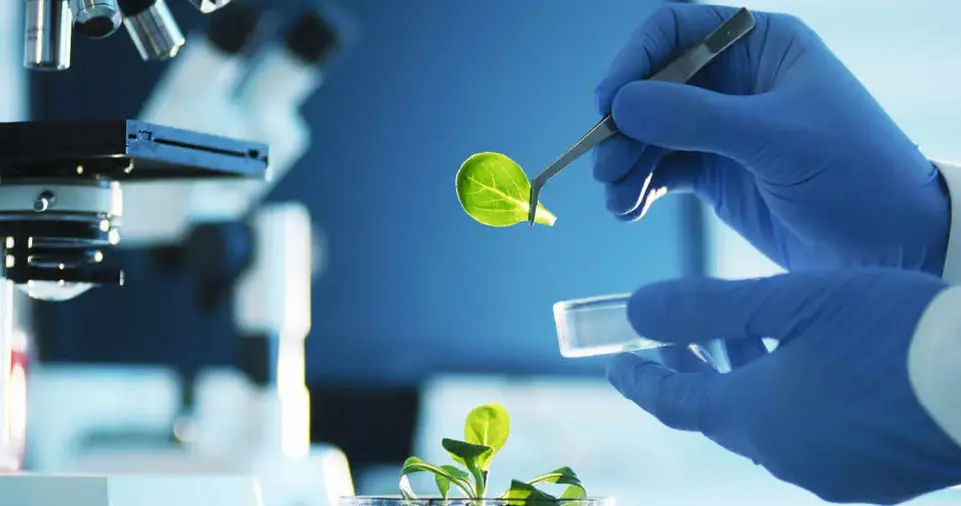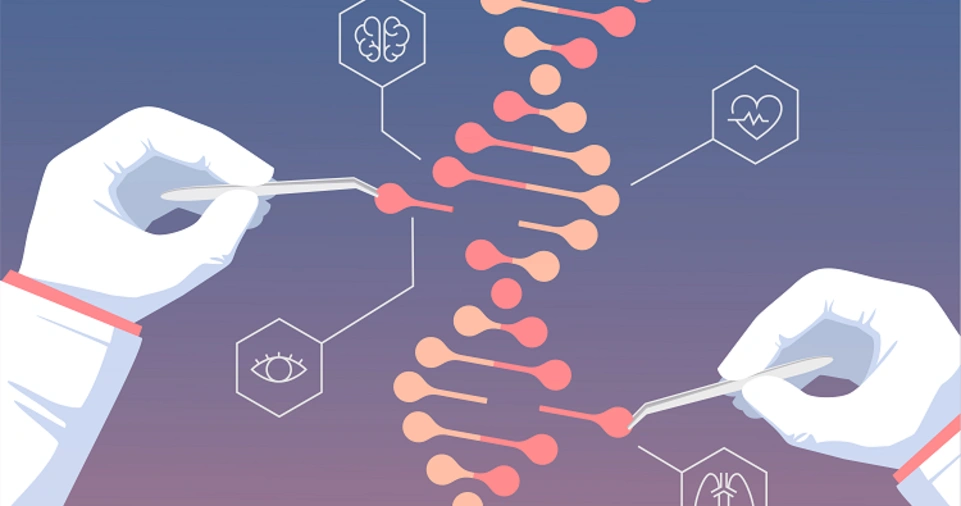Biotechnology is an innovative and rapidly evolving career field that integrates biological sciences with cutting-edge technology to solve real-world problems.
From developing life-saving drugs to improving agricultural yields and creating sustainable industrial solutions, biotechnology spans a wide array of applications.
Its interdisciplinary nature makes it an exciting and versatile career choice for individuals with diverse interests and skill sets.
However, building a career in biotechnology requires a strategic approach, encompassing education, skills development, and industry exposure.
Whether you are a student considering your options, a recent graduate, or a professional looking to pivot into biotech, this comprehensive guide will provide you with actionable steps and insights to kickstart your journey in this dynamic industry.
With advancements like CRISPR, personalized medicine, and synthetic biology gaining traction, the biotechnology sector offers tremendous growth potential and diverse career paths.
This article covers everything from understanding biotechnology and obtaining relevant education to gaining practical experience and landing your dream job.
By understanding the nuances of this field and actively preparing for its challenges, you can set yourself on a trajectory toward a fulfilling and impactful career.
Let’s explore the expansive opportunities biotechnology has to offer.
What is Biotechnology and Why Choose It?

Understanding Biotechnology
Biotechnology is the application of biological processes, organisms, or systems to develop products and technologies that enhance human life.
It combines principles of biology, chemistry, physics, and computer science to innovate across various industries.
From manipulating DNA to creating sustainable energy sources, biotechnology is a critical tool for addressing global challenges.
Applications of Biotechnology
Healthcare:
Development of vaccines, gene therapies, and diagnostic tools to combat diseases and improve patient outcomes.
Agriculture:
Creation of genetically modified crops for better yield, pest resistance, and nutritional value, ensuring food security.
Environment:
Bioremediation techniques to clean pollutants, promote sustainability, and address climate change.
Industrial Processes:
Production of biofuels, biodegradable plastics, and enzymes for efficient and eco-friendly manufacturing.
Why Pursue a Career in Biotechnology?
Diverse Career Paths:
Opportunities abound in research, development, manufacturing, quality assurance, marketing, and regulatory roles, offering flexibility and growth.
High Demand:
With industries increasingly adopting biotech innovations, skilled professionals are in demand worldwide.
Innovative Field:
Engage in cutting-edge technologies like CRISPR, synthetic biology, and bioinformatics.
Impactful Work:
Address global issues such as food security, environmental sustainability, and public health with tangible contributions.
How to Start a Career in Biotechnology

Pursue Relevant Education
Education forms the foundation of a successful career in biotechnology. Your journey begins with choosing the right academic path and specialization.
Undergraduate Programs
Degrees to Consider:
Opt for a Bachelor of Science (B.Sc.) in Biotechnology, Biochemistry, Molecular Biology, Genetics, or Microbiology.
Skills Acquired:
Gain knowledge in cell biology, genetics, biostatistics, and bioinformatics—core subjects essential for biotech applications.
Institutions:
Research universities that offer robust biotechnology programs with hands-on laboratory work, internships, and exposure to industry trends.
Postgraduate and Doctoral Studies
Master’s Programs:
A Master’s degree in Biotechnology or related fields allows you to specialize in bioinformatics, genetic engineering, pharmaceutical biotechnology, or environmental biotechnology.
Doctorate:
Pursue a Ph.D. to access advanced research roles, academic positions, or leadership in biotech firms. Choose a dissertation topic aligned with emerging trends.
Dual Degrees:
Consider integrated programs such as MD-PhD or MBA-Biotech, which combine technical expertise with medical or business acumen.
Gain Practical Experience
Hands-on experience is crucial to apply theoretical knowledge and gain insights into the industry’s functioning.
Internships and Industrial Training
Internships:
Secure internships at biotech firms, research laboratories, or academic institutions. Exposure to real-world scenarios helps you understand laboratory protocols and develop analytical thinking.
Training Programs:
Enroll in short-term certifications or industrial training programs focused on techniques like DNA sequencing, protein purification, or fermentation technology.
Research Opportunities
Academic Projects:
Collaborate with professors on research projects during your undergraduate or postgraduate studies.
Collaborations:
Join multi-disciplinary research groups to work on cross-functional projects, enhancing teamwork and problem-solving skills.
Technical Skills Development
Laboratory Techniques:
Master essential techniques like PCR, CRISPR, ELISA, flow cytometry, and electrophoresis.
Data Analysis Tools:
Gain expertise in bioinformatics tools like BLAST, Python, R, MATLAB, and machine learning applications for genomics.
Documentation:
Hone your ability to maintain detailed lab records and create research reports, crucial for regulatory compliance and effective communication.
Specialize in a Field of Interest
The biotechnology industry is vast, and choosing a specialization can help you focus your career.
Key Specializations
- Genetic Engineering: Modify genetic material to create novel organisms or enhance desired traits.
- Bioinformatics: Leverage computational tools to analyze complex biological data.
- Pharmaceutical Biotechnology: Develop innovative drugs, vaccines, and therapeutic methods.
- Agricultural Biotechnology: Enhance crop productivity, resistance, and sustainability.
- Industrial Biotechnology: Utilize biological systems for manufacturing and renewable energy.
Emerging Fields
- Synthetic Biology: Engineer biological systems to create entirely new functions or products.
- Personalized Medicine: Develop targeted treatments based on genetic profiles for precision healthcare.
- Environmental Biotechnology: Address environmental challenges through innovative bioprocesses.
Stay Updated on Industry Trends
Biotechnology is an ever-evolving field, and staying informed about the latest advancements is essential for career growth.
Follow Research and Publications
- Subscribe to journals such as Nature Biotechnology, Trends in Biotechnology, and Biotechnology Advances.
- Keep up with government publications and case studies to understand regulatory updates and market needs.
Join Professional Organizations
- Become a member of associations like the Biotechnology Innovation Organization (BIO) or International Society for Computational Biology (ISCB) to access networking events, industry news, and mentorship programs.
- Attend global conferences and webinars to stay ahead in emerging fields like synthetic biology and CRISPR technologies.
Networking and Mentorship
- Leverage professional platforms like LinkedIn to connect with alumni and industry leaders.
- Seek mentorship from seasoned researchers or educators to guide your academic and professional choices.
Develop Complementary Skills
Beyond technical expertise, developing soft and interdisciplinary skills is crucial for career advancement.
Soft Skills
- Communication: Learn to present complex findings in a clear, compelling manner.
- Problem-Solving: Approach scientific challenges with innovative, evidence-based solutions.
- Project Management: Master the art of planning, executing, and monitoring biotech projects effectively.
Programming and Data Analysis
- Gain proficiency in coding languages like Python, R, and SQL for data analysis and bioinformatics.
- Understand machine learning and artificial intelligence to interpret complex datasets and drive innovation.
Regulatory Knowledge
- Familiarize yourself with Good Manufacturing Practices (GMP), Good Laboratory Practices (GLP), and international standards.
- Stay updated on regulatory guidelines set by agencies like the FDA, EMA, and WHO.
Explore Job Opportunities
Landing a job in biotechnology involves a mix of strategic job hunting and leveraging your network.
Entry-Level Positions
- Research Assistant
- Laboratory Technician
- Quality Control Analyst
- Manufacturing Associate
Mid-Level and Advanced Roles
- Bioprocess Engineer
- Clinical Research Associate
- Bioinformatics Specialist
- Regulatory Affairs Manager
- Biotech Consultant
Where to Find Jobs
- Biotech-Specific Portals: Utilize platforms like BioSpace, Science Careers, and BiotechGate.
- Networking Events: Participate in career fairs and industry meetups.
- Startups: Explore roles in biotech startups for fast-paced growth and diverse responsibilities.
Consider Advanced Certifications
Certifications can enhance your qualifications and make you stand out in a competitive job market.
Key Certifications
- Certified Clinical Research Associate (CCRA)
- Good Laboratory Practices (GLP) Certification
- Advanced Bioinformatics Training
- Biomanufacturing Specialist
Online Learning Platforms
- Utilize resources like Coursera, edX, and Khan Academy to learn at your own pace. Seek specialized programs from reputed institutions like Harvard or MIT.
Alternative Career Routes in Biotechnology
Biotechnology offers diverse opportunities beyond traditional industry roles.
Entrepreneurship
- Start your own biotech company focusing on niche markets or unmet needs.
- Utilize incubators, accelerators, and government grants to secure funding and mentorship.
Academia
- Pursue a career in teaching and academic research. Apply for prestigious postdoctoral fellowships to build your credentials.
Government and Policy Roles
- Work with organizations like the FDA, WHO, or USDA to develop and implement regulatory standards.
- Contribute to public health and agricultural policy to drive meaningful change.
Conclusion
Starting a career in biotechnology requires a blend of education, technical skills, and industry awareness.
By pursuing relevant academic qualifications, gaining hands-on experience, and staying updated on industry trends, you can build a rewarding and impactful career in this dynamic field.
Whether your interests lie in research, industrial applications, or entrepreneurship, biotechnology offers endless opportunities to innovate and make a difference.
With dedication, curiosity, and adaptability, you can excel in this ever-evolving industry.


